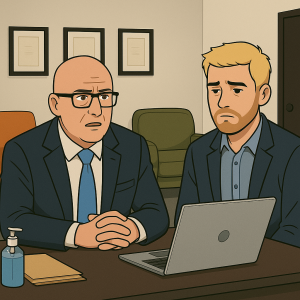1. Victim and Witness Rights
- Arizona Attorney General – Victim Services
Explains the legal rights of victims and provides access to compensation programs and victim advocates. - Arizona Judicial Branch – Victims’ Rights
Offers educational materials and procedural support for navigating criminal cases as a victim or witness.
2. Free and Low-Cost Legal Aid Programs
- AZLawHelp.org
Statewide legal aid portal with free resources, attorney referrals, and forms for civil issues like harassment or protective orders. - Community Legal Services
Provides free legal aid to eligible individuals in central and western Arizona for domestic violence, harassment, and related civil matters.
3. Relevant Laws
- Stalking: A.R.S. § 13-2923
What it means: Knowingly or intentionally engaging in behavior that causes someone to fear for their safety or the safety of others. Includes repeated threats, surveillance, or communication. - Harassment: A.R.S. § 13-2921
What it means: Involves repeated and unwanted contact or conduct that seriously alarms, annoys, or harasses another person. Includes written, verbal, and digital behavior. - Bullying: No specific adult criminal statute. Addressed under education law and school district policies.
What it means: Arizona defines bullying in school environments through anti-bullying laws and school policies. Students may be disciplined through school or referred to juvenile court depending on severity. - Defamation: Civil tort, not criminal. Governed by Arizona common law and civil courts.
What it means: Defamation lawsuits may be filed for false written (libel) or spoken (slander) statements that damage a person’s reputation. Online defamation can also apply.
4. Reporting and Hotlines
- Dial 911 if there is an immediate threat or danger.
- Non-emergency issues may be reported to your local police department or school officials.
- Arizona Coalition to End Sexual and Domestic Violence (ACESDV)
Connects victims to support groups, safe housing, and legal assistance statewide. - Statewide Domestic Violence Hotline: 1-800-799-SAFE (7233)
Provides 24/7 assistance, advocacy, and safety planning tools.
5. Support Organizations
- Arizona Coalition to End Sexual and Domestic Violence
Statewide network that offers support, advocacy, and resources for survivors of abuse, stalking, or harassment. - Our Family Services
Provides legal advocacy, crisis response, and housing support for individuals affected by violence and abuse in southern Arizona.
6. Civil Remedies and Protection Orders
Arizona residents may file for an Injunction Against Harassment or an Order of Protection through local or superior courts. These orders can legally prohibit contact, threats, or other abusive behavior. Assistance is available through legal aid services or court self-help centers.
Important Note on Jurisdiction: If the individual you are seeking a restraining order against lives in a different state, your local court may not have jurisdiction to enforce that order. In most cases, you must file for protection in the state where that individual resides or where the conduct occurred. This applies even in situations involving online harassment, defamation, or stalking. Contact legal aid services in both your state and the other person’s state for guidance.
7. Youth and School Resources
- Arizona Department of Education – School Safety and Prevention
Oversees bullying prevention efforts, reporting processes, and student support strategies across public schools.
8. Court Forms and Filing Help
- Arizona Courts – Protective Orders
Provides online forms, court guides, and self-service instructions for protection orders and harassment injunctions.
9. Online Safety and Privacy Tools
- NNEDV Tech Safety Toolkit
National digital safety resource offering tools to help individuals protect themselves from cyberstalking, harassment, and online threats.
Disclaimer: This information is provided for educational purposes only and does not constitute legal advice.




